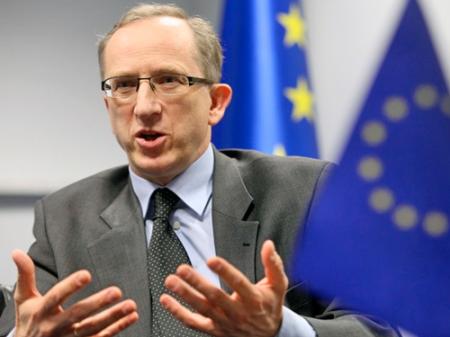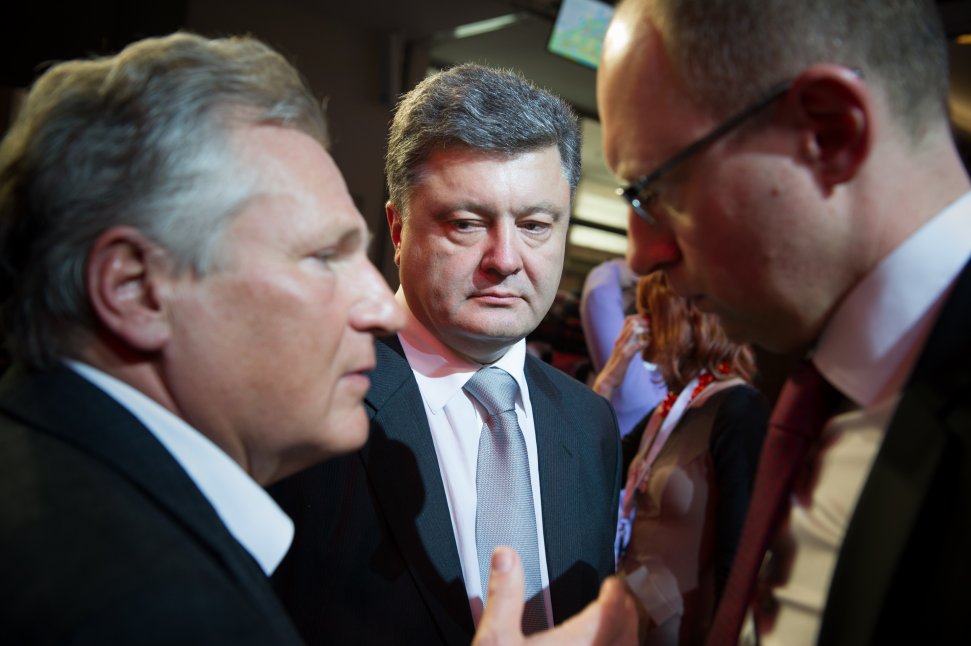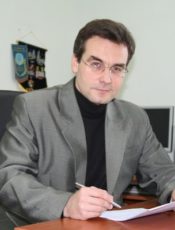Speaking in parliament recently Leszek Miller, former Poland’s Prime Minister and head of Democratic Left Alliance, said about the Russia-Ukraine relations «Poland has become rather a problem than a solution». The remark did not go unnoticed and he came under harsh criticism from media.
Some voiced concern over the possibility that such statements could provoke «radical changes» and prompt Europe to look at the east «through the eyes of Orban, Berlusconi and Miller». Nevertheless nobody denied the fact that the Poland’s stance on Ukraine is one of factors to spur the conflict. It’s obvious.
Since the very first days of Maidan protests Poland has applied a lot of effort to turn Ukraine into a European problem. And it has closely cooperated with the United States.
According to Alexander Yakimenko, the former head of Ukraine’s Security Service operative, «All the orders were given either by the US embassy or by Jan Tombinski, a Polish representative who worked in the EU mission in Kiev. Poland played an invaluable role in the coup. It has always dreamt of restoring its former power and the Polish-Lithuanian Commonwealth».

In September 2012 Kiev welcomed the appointment of Jan Tombinski as head of the Delegation of the European Union to Ukraine. According to Polish media, as soon as Mr. Tombinski took office, the EU office turned into the headquarters of the extremists who overthrew the legal authorities and actually sparked a civil war in the country.
As soon as Ukraine was set on fire some compatriots of Tombinski joined his efforts, like, for instance, Andrzej Derlatka, former chief of the Polish Intelligence Agency, who has been responsible for interaction with the US Central Intelligence Agency. He had to resign as a result of scandal related to CIA’s secret prisons operating on Polish soil. Derlatka held talks with President Poroshenko about the activities of Polish secret services in Ukraine including the protection of top NATO officials (the US delegated this responsibility to Poland). Jeffrey Egan и Raymond Mark Davidson, former and current heads of CIA station in Kiev, acted as intermediaries at the talks. Since the very start Polish and American secret services preferred to cooperate with retired veterans instead of officers on active service, many of whom had dubious reputations or intelligence identities revealed. Here is a good example. Jerzy Dziewulski, the security advisor to former Polish President Aleksander Kwasniewski, worked as a security guard to protect Ukrainian former acting President Turchinov, whom he accompanied during the trips to the Donbass after the civil war started.

According to Polish experts, the Ukraine’s high standing officials befriended Polish politicians a long time ago. For example, Ukraine’s tycoon Mykola Zlochevsky, ex-Minister of Ecology, and former President of Poland Aleksander Kwasniewski are on the Board of Directors of Burisma Holdings (the company has a lot of interest in a potential shale gas exploration in the east of Ukraine).
In October Petro Poroshenko met Eva Kovacs, the Poland's new Prime Minister, to discuss ‘strategic partnership». The next day Polish Foreign Minister Grzegorz Shetina compared the relationship of Warsaw and Kiev with the relations between European countries and their colonies in Africa.
He elaborated on his statement on November 6, «Talking about Ukraine without Poland – the same as that discussing the case of Libya, Algeria, Tunisia, and Morocco without Italy, France and Spain». It sounded defiantly enough to evoke concern in Kiev but Ukraine’s officials had no guts to send a note to Warsaw. The Ukrainian media raised ballyhoo about it but emphasized that not all Polish outlets shared the opinion of Polish Foreign Minister.
Popular Rzeczpospolita published the article titled Ukraine as Polish Colony. Schetyna’s Words Arouse Indignation. It cited the opinion of Ukrainian expert, «If the Polish foreign minister said this, it should be his last thing he says in this capacity», said Vasyl Filipchuk, former Ukrainian diplomat and currently Chairman of the ICPS (International Centre for Policy Studies) Board. But nobody paid attention to his words.
Meanwhile Ukraine’s officials are going through training in Poland to enhance their professional skills for doing a better job while serving in the «colonial administration», as Grzegorz Shetina would call it. According to Jakub Korejba, a Polish researcher, the National School of Public Administration in Warsaw is responsible for the process. It was created with the help of French specialists patterned after the National School of Administration (The École nationale d'administration –ENA) in Paris. Jacek Czaputowicz, the former director the school, has been a militant of the Solidarity radical wing and Director at the Department of Foreign Policy Strategy and Planning at the Ministry of Foreign Affairs. Jan Pastwa, the School’s current director, has served as Polish Ambassador to the Czech Republic. The both men are ardent supporters of the concept aimed at containment of Russia in Europe. Pastwa is a member of radical extremist group ZHR (the Scouting Association of the Republic, Polish: Związek Harcerstwa Rzeczypospolitej -ZHR) which proclaims the return of Western Belarus and Ukraine to Poland as its foreign policy goals.
Leszek Miller is right. Poland has become part of big problem.









